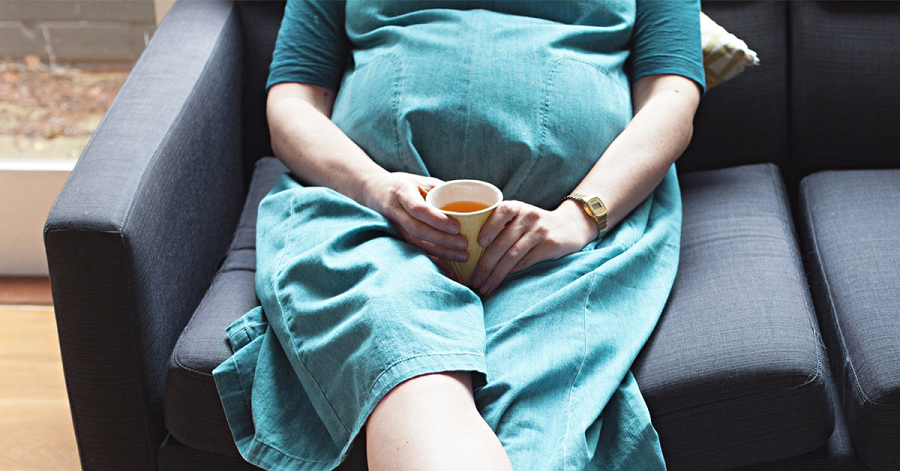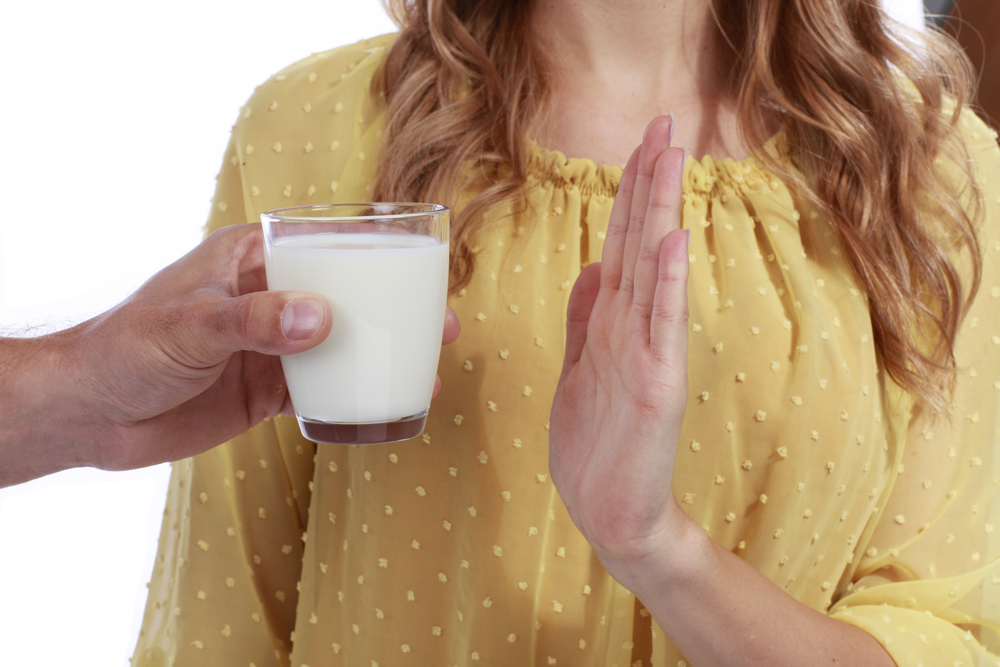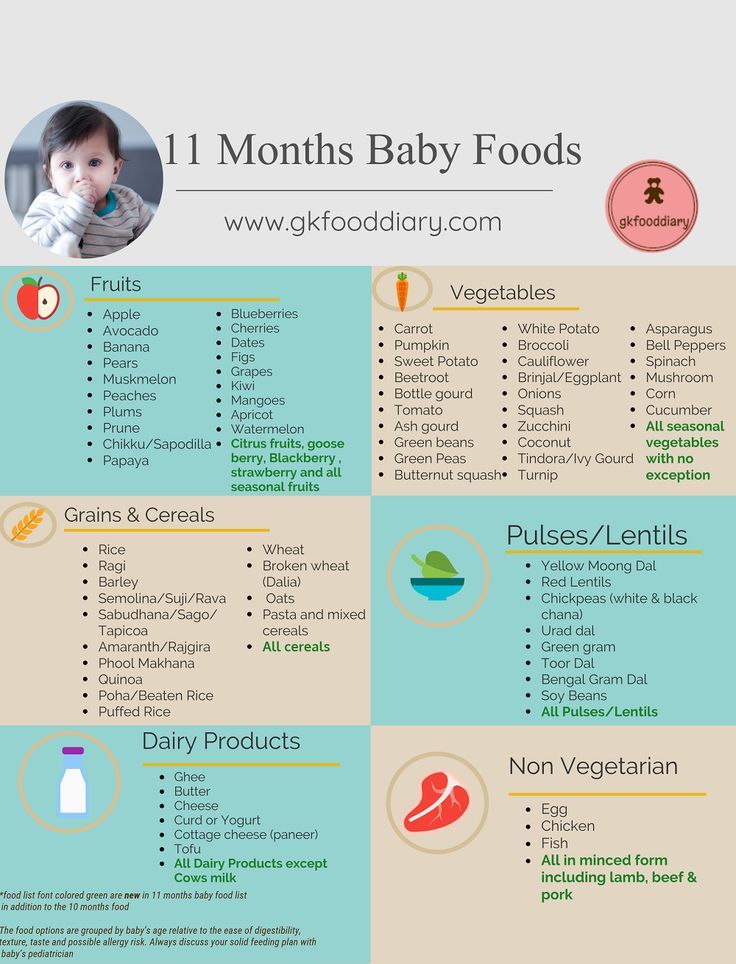What tea can you drink during pregnancy
What teas are safe to drink while pregnant?
- Pregnancy
- Diet & Fitness
By Hallie Levine
|
|
June 8, 2021
Black, white, and green teas in moderation are safe during pregnancy. They contain caffeine, so be mindful of how much you sip to stay under the recommended limit for pregnancy. Use caution with herbal teas, which aren't FDA regulated. Ginger tea and peppermint tea are considered safe, but some other herbal teas have been linked to pregnancy complications. Talk to your healthcare provider before you brew to make sure your favorite teas are safe for both you and your baby.
Photo credit: istock.com / STEEX
- Can pregnant women drink tea?
- Is it safe to drink herbal tea during pregnancy?
- What teas are safe to drink while pregnant?
- Teas to avoid during pregnancy
- What about herbal teas made for pregnancy?
Can pregnant women drink tea?
Yes, drinking tea while pregnant is safe as long as you take some precautions. It's important to remember that black, green, and white teas all contain caffeine, and it can be easy to overdo that. The American College of Obstetricians and Gynecologists (ACOG) advises pregnant women to limit their caffeine intake to less than 200 milligrams per day. A cup of black tea has almost 50 milligrams, while a cup of green tea has about 25.
Herbal teas – despite having a health halo – aren't always safe for pregnancy. So, before you drink tea, be sure to calculate its caffeine content, and run any herbal teas by your healthcare provider.
There are many reasons why you may want to reach for a cup (or two) of tea during pregnancy. It's a soothing way to stay hydrated, and tea itself is chock full of antioxidants that can help boost your immune system and even fight off cancer and heart disease.
Black tea is a good substitute for your morning coffee, especially if you're watching your caffeine, and if it's sugar that you're craving, some herbal teas may hit that sweet spot.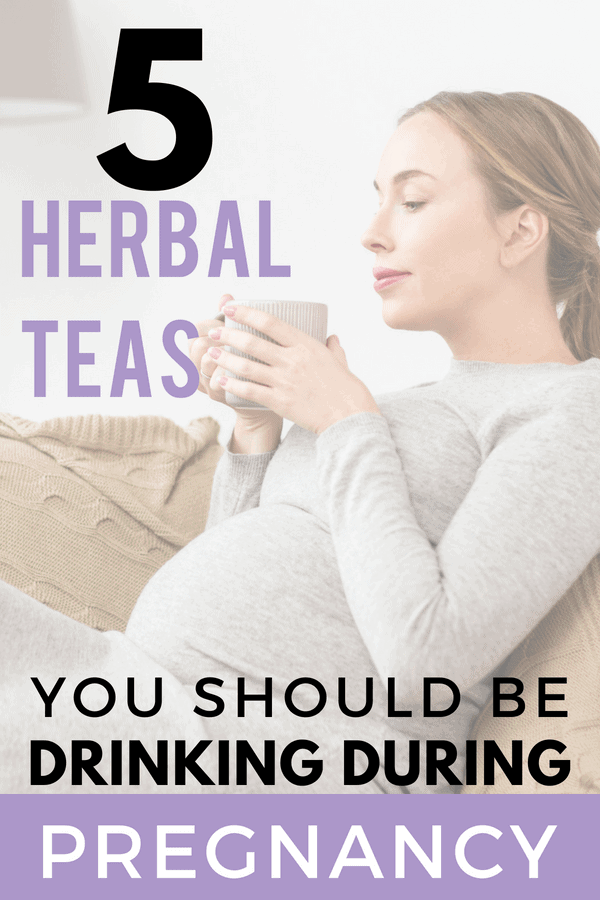 There are many drinks you're advised to avoid during pregnancy – anything with alcohol or too much caffeine – so a cup of tea can be a good alternative.
There are many drinks you're advised to avoid during pregnancy – anything with alcohol or too much caffeine – so a cup of tea can be a good alternative.
Is it safe to drink herbal tea during pregnancy?
Some herbal teas are safe for pregnancy, and some aren't. Herbal supplements – which include teas – aren't regulated by the Food and Drug Administration (FDA). Only a few of the herbs used in teas have been studied in pregnant women.
Teas made from herbs like peppermint and ginger are considered safe to drink in moderation while you're pregnant or nursing. Just keep in mind that these herbs are more concentrated in teas than in food, so drinking them in excess may be harmful even if eating them isn't. That's why it's best to check with your provider before drinking any kind of herbal tea during your pregnancy.
What teas are safe to drink while pregnant?
The following teas are considered safe in moderation during pregnancy:
Ginger tea: Ginger is commonly used to ease morning sickness during pregnancy, and studies have shown it's safe and effective for this purpose.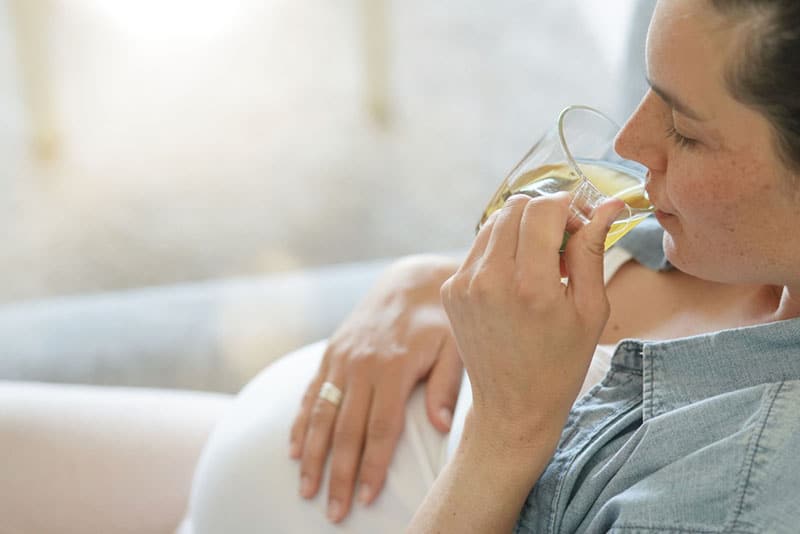 But there's also some evidence that it may negatively affect fetal sex hormones and increase the risk of vaginal bleeding during pregnancy. So before you drink ginger tea, discuss its benefits and risks with your healthcare provider.
But there's also some evidence that it may negatively affect fetal sex hormones and increase the risk of vaginal bleeding during pregnancy. So before you drink ginger tea, discuss its benefits and risks with your healthcare provider.
Peppermint tea: Peppermint tea is often used to calm an upset tummy during pregnancy, and it's considered safe. Be aware that it may not help with morning sickness: one study found peppermint oil aromatherapy, for example, didn't work any better to treat nausea and vomiting in the first half of pregnancy than a placebo. Peppermint tea has also been linked to heartburn, which is already very common in pregnant women.
Green tea: Green teas, including trendy matcha teas, are considered safe to drink during pregnancy. They're also much lower in caffeine than coffee – about 25 grams a cup versus 100 grams. Limit yourself to less than three cups of green tea a day, though. Green tea is high in catechins, substances which can prevent your cells from fully absorbing folic acid. Your body needs plenty of folic acid during pregnancy to help prevent neural tube defects.
Your body needs plenty of folic acid during pregnancy to help prevent neural tube defects.
Black or white teas: these popular forms of tea, like green tea, are considered safe to drink during pregnancy. Just remember not to overdo it, as four cups of black tea, for example, will get you to your daily 200 mg caffeine quotient. Iced tea is often made from black tea, so keep that in mind as a source of caffeine.
Teas to avoid during pregnancy
Before pregnancy, you may have sipped a cup of chamomile tea to help you nod off. During pregnancy, it's not a good idea. Studies show that if you drink chamomile tea regularly, you may have a higher risk of miscarriage, preterm labor, or low birth weight.
Other herbal teas to avoid if you're pregnant or nursing include:
- Alfalfa
- Black cohosh
- Blue cohosh
- Comfrey
- Dong quai
- Ephedra (called ma huang in traditional Chinese medicine and banned in the United States since 2004)
- European mistletoe
- Goldenseal
- Hibiscus
- Horehound
- Kava
- Labrador
- Lemongrass
- Licorice root
- Mugwort
- Nettle leaf (also called stinging nettle leaf)
- Passion flower
- Pennyroyal
- Rosemary
- Sage
- Sassafras
- Saw palmetto
- Vetiver
- Yarrow
- Yerba mate
This isn't a complete list, so always ask your provider whether a particular herb is safe to consume during pregnancy.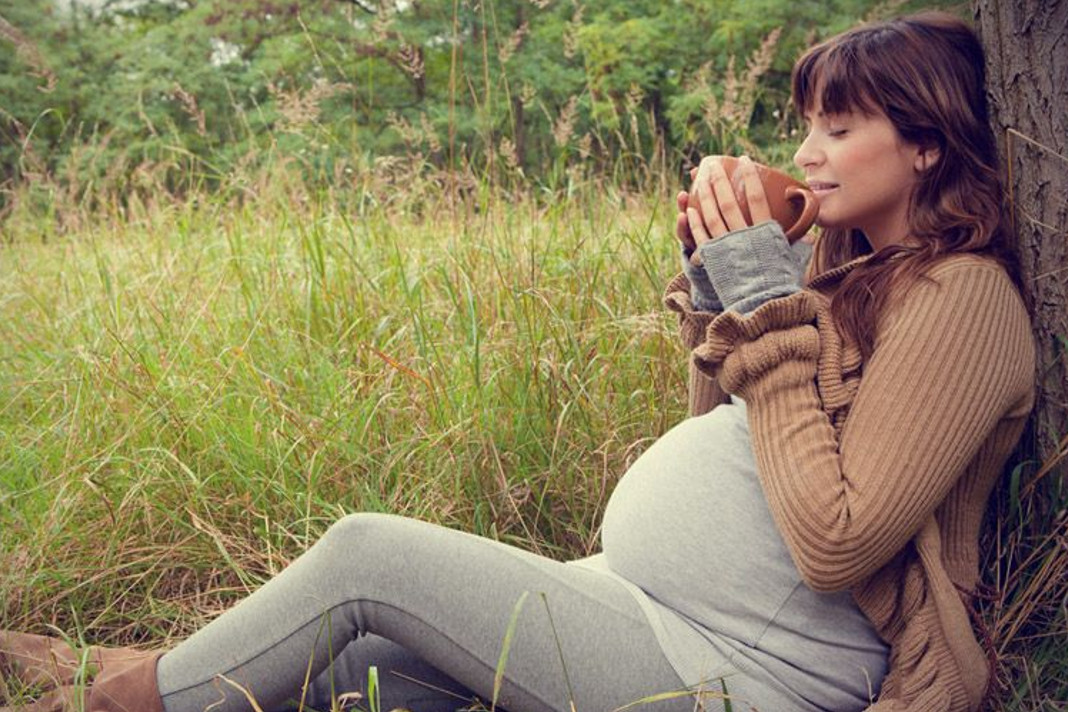 Note: You can still eat food containing some of these herbs, like rosemary and sage, because the amounts used in food are generally much smaller than those used in tea – and not as potent. (The brewing process for making tea concentrates the chemicals in the herbs.)
Note: You can still eat food containing some of these herbs, like rosemary and sage, because the amounts used in food are generally much smaller than those used in tea – and not as potent. (The brewing process for making tea concentrates the chemicals in the herbs.)
What about herbal teas made for pregnancy?
The same cautions apply to teas made specifically for pregnant women and sold in supermarkets and health food stores. Although the makers of pregnancy teas promote their products as healthy for expectant moms, no clinical studies support these claims, and the safety of the ingredients isn't regulated.
Pregnancy teas usually include ingredients such as alfalfa, fennel seed, lemongrass leaf, lemon verbena, nettle leaf, red raspberry leaf, rose hips, and strawberry leaf. Not all these are safe to take during pregnancy. For example, nettle leaf (also known as stinging nettle leaf) stimulates the uterus and can cause miscarriage. Some midwives use raspberry leaf (also known as red raspberry leaf) to aid delivery, but its effectiveness hasn't been proven.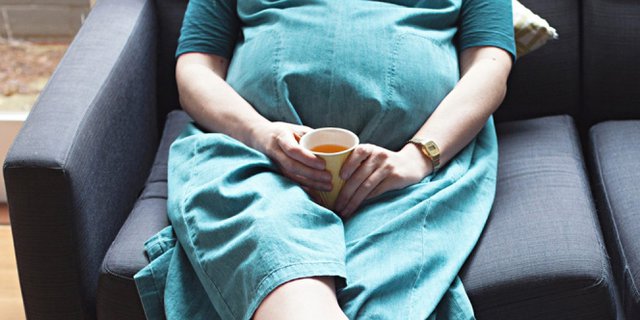 It should be used only in late pregnancy under the supervision of a healthcare professional.
It should be used only in late pregnancy under the supervision of a healthcare professional.
Sources
BabyCenter's editorial team is committed to providing the most helpful and trustworthy pregnancy and parenting information in the world. When creating and updating content, we rely on credible sources: respected health organizations, professional groups of doctors and other experts, and published studies in peer-reviewed journals. We believe you should always know the source of the information you're seeing. Learn more about our editorial and medical review policies.
Cuzzolin L, et al. 2010. Use of herbal products among 392 Italian pregnant women: focus on pregnancy outcome. Pharmacoepidemiology and Drug Safety 19(11):1151-8. https://pubmed.ncbi.nlm.nih.gov/20872924/ [Accessed June 2021]
Heitmann K, et al. 2013. Safety of ginger use in pregnancy: results from a large population-based cohort study. European Journal of Clinical Pharmacology 69(2):269-77. https://pubmed. ncbi.nlm.nih.gov/22706624/ [Accessed June 2021]
ncbi.nlm.nih.gov/22706624/ [Accessed June 2021]
Tiran D. 2012. Ginger to reduce nausea and vomiting in pregnancy: evidence of effectiveness is not the same as proof of safety. Complementary Therapies in Clinical Practice 18(1):22-5. https://pubmed.ncbi.nlm.nih.gov/22196569/ [Accessed June 2021]
UpToDate. May 2021. Treatment and outcome of nausea and vomiting of pregnancy. https://www.uptodate.com/contents/nausea-and-vomiting-of-pregnancy-treatment-and-outcome [Accessed June 2021]
Penn Medicine. December 2019. The Hidden Health Benefits of Tea. https://www.pennmedicine.org/updates/blogs/health-and-wellness/2019/december/health-benefits-of-tea [Accessed June 2021]
American College of Obstetricians and Gynecologists. 2020. Moderate Caffeine Consumption During Pregnancy. https://www.acog.org/clinical/clinical-guidance/committee-opinion/articles/2010/08/moderate-caffeine-consumption-during-pregnancy [Accessed June 2021]
Medeniyet Medical Journal. February 2020. Frequently Used Herbal Teas During Pregnancy - Short Update. https://www.ncbi.nlm.nih.gov/pmc/articles/PMC7384490/#r34. [Accessed June 2021]
https://www.ncbi.nlm.nih.gov/pmc/articles/PMC7384490/#r34. [Accessed June 2021]
Przeglad Gastroenterology. October 2014. Risk factors for gastroesophageal reflux disease: the role of diet. https://www.ncbi.nlm.nih.gov/pmc/articles/PMC4223119/. [Accessed June 2021]
MotherToBaby. March 2018. Should Pregnant Women Get the Green Light to Drink Green Tea? https://mothertobaby.org/baby-blog/should-pregnant-women-get-the-green-light-to-drink-green-tea/ [Accessed June 2021]
Balbontin, YM, et al. 2019. Herbal Medicinal Product Use During Pregnancy and the Postnatal Period. Obstetrics and Gynecology 133(5): 920-32 https://www.ncbi.nlm.nih.gov/pmc/articles/PMC6485309/ [Accessed June 2021]
Show more
advertisement | page continues below
advertisement
Featured video
All pregnancy, parenting, and birth videos >
Is Tea Safe During Pregnancy?
Tea is one of the most popular beverages worldwide — and one that many women continue to enjoy during pregnancy.
Some drink it to simply decompress or help meet the increased fluid needs of pregnancy. However, a proportion of women appear to use tea as a natural remedy for pregnancy-related symptoms or as a tonic to prepare for childbirth in the last weeks of pregnancy (1).
Many may believe that tea is probably safe to drink while pregnant because it’s natural. In reality, women may benefit from reducing their intake of certain teas, while completely avoiding others throughout their pregnancy.
This article discusses the safety of tea during pregnancy, including which teas pregnant women may continue to drink, and which they may want to avoid.
Black, green, white, matcha, chai, and oolong teas are all sourced from the leaves of the Camellia sinensis plant. They contain caffeine — a natural stimulant that should be limited during pregnancy.
They each provide approximately the following amount of caffeine per cup (240 mL) (2, 3, 4, 5, 6):
- matcha: 60–80 mg
- oolong tea: 38–58 mg
- black tea: 47–53 mg
- chai: 47–53 mg
- white tea: 25–50 mg
- green tea: 29–49 mg
Caffeine can easily cross the placenta, and your baby’s immature liver has difficulty breaking it down. As such, infants are more likely to experience side effects from amounts of caffeine that would otherwise be considered safe for adults.
As such, infants are more likely to experience side effects from amounts of caffeine that would otherwise be considered safe for adults.
Research suggests that infants exposed to too much caffeine during pregnancy may have a higher risk of being born preterm or with a low birth weight or birth defects. High caffeine intake during pregnancy may also increase the risk of miscarriage or stillbirth (7, 8, 9).
These risks appear minimal when pregnant women limit their caffeine intake to a maximum of 300 mg per day (8).
However, some women’s genetics may make them more sensitive to the ill effects of caffeine. For instance, research suggests that this small proportion of women may have a 2.4 times higher risk of miscarriage when consuming 100–300 mg of caffeine per day (8).
Caffeinated teas contain less caffeine than coffee and are generally considered safe to drink during pregnancy. However, their intake may need to be limited to avoid consuming too much caffeine per day (10, 11).
summaryBlack, green, matcha, oolong, white, and chai teas contain caffeine, a stimulant that should be limited during pregnancy. Although they’re generally safe, women may benefit from limiting their daily intake of these caffeinated teas during pregnancy.
Herbal teas are made from dried fruits, flowers, spices, or herbs and therefore contain no caffeine. However, they may contain other compounds considered unsafe during pregnancy, which may result in risky side effects.
Miscarriage or preterm labor
Teas that may increase your risk of miscarriage or preterm labor include (11, 12, 13, 14, 15):
- fennel
- fenugreek
- sage
- vervain
- borage
- pennyroyal
- licorice
- thyme
- motherwort
- lovage
- blue cohosh
- black cohosh
- frankincense (in large amounts)
- chamomile (in large amounts)
Teas that may stimulate or increase menstrual bleeding include (12, 16, 17):
- motherwort
- lovage
- frankincense
Birth defects
Teas that may increase the risk of birth defects include (12):
- motherwort
- borage
Other side effects
Moreover, in rare cases, eucalyptus tea may cause nausea, vomiting, or diarrhea.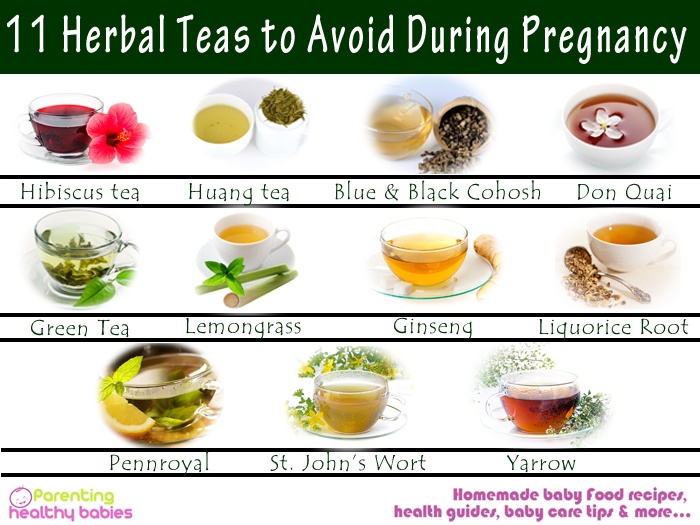 What’s more, a case report suggests that regularly drinking chamomile tea during pregnancy may result in poor blood flow through a baby’s heart (1, 12).
What’s more, a case report suggests that regularly drinking chamomile tea during pregnancy may result in poor blood flow through a baby’s heart (1, 12).
Certain herbal teas may also contain compounds that interact with medications. Therefore, pregnant women should inform their healthcare providers of any herbal teas they are currently consuming or planning on consuming at any time during pregnancy (1).
Keep in mind that, due to the limited amount of research on the safety of herbal teas, a lack of evidence of negative side effects shouldn’t be seen as proof that the tea is safe to drink during pregnancy.
Until more is known, it may be best for pregnant women to remain cautious and avoid drinking any teas that have not yet been shown to be likely safe during pregnancy (18).
summaryCertain herbal teas may be linked to a higher risk of upset stomach, menstrual bleeding, miscarriage, birth defects, or preterm birth. Pregnant women may benefit from avoiding all teas not yet deemed as likely safe for pregnancy.
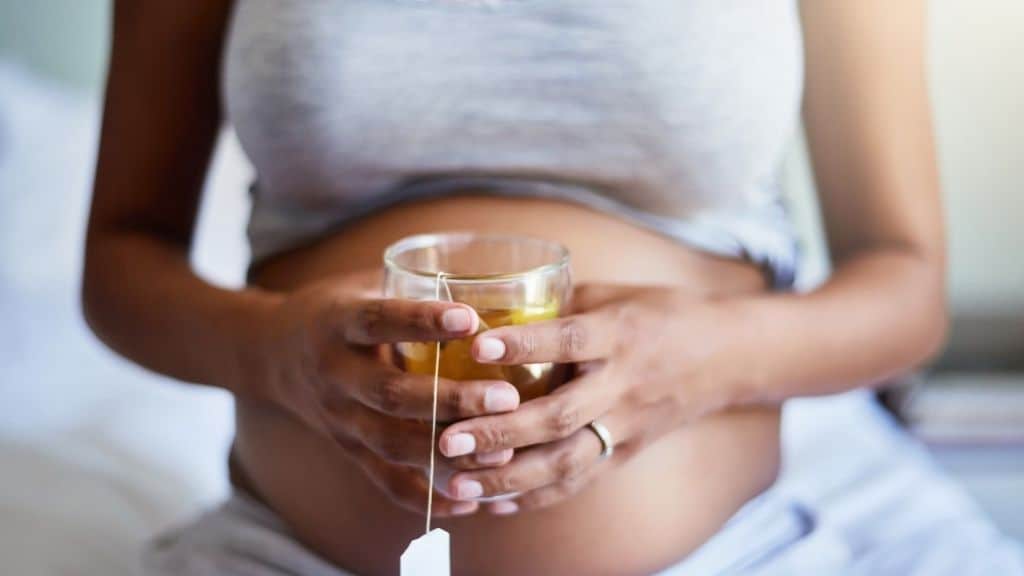
Teas are not strictly tested or regulated. This means that women may be inadvertently drinking teas contaminated with unwanted compounds, such as heavy metals (19, 20).
For instance, one study tested common off-the-shelf black, green, white, and oolong teas. It found that 20% of all samples were contaminated with aluminum. Moreover, 73% of all samples contained lead levels considered unsafe during pregnancy (21).
In another study, women with the highest intake of green and herbal teas during the first trimester of pregnancy had 6–14% higher blood lead levels than those who drank the least. That said, all blood lead levels remained within the normal range (20).
Due to the lack of regulation, there’s also a risk of herbal teas containing ingredients not listed on the label. This increases the risk that pregnant women end up inadvertently consuming a tea tainted with an undesirable herb, such as the ones listed above.
It’s currently impossible to eliminate this risk. However, you may somewhat minimize it by only purchasing teas from reputable brands.
However, you may somewhat minimize it by only purchasing teas from reputable brands.
What’s more, it’s likely best to avoid purchasing teas in bulk, as they have a higher risk of becoming mixed with tea leaves that may be contraindicated during pregnancy from adjacent bulk bins.
summaryThe manufacturing of teas is not regulated. As a result, teas may become tainted with unwanted compounds, such as heavy metals or herbs that have been linked to poor pregnancy outcomes.
Most caffeinated teas are considered safe to drink during pregnancy, as long as they do not cause a woman’s total daily caffeine intake to exceed 300 mg (8, 11).
Women who are particularly sensitive to caffeine may benefit from aiming for a maximum of 100 mg of caffeine per day (8).
When it comes to herbal teas, there’s not a lot of research regarding their effects during pregnancy. As such, most health professionals advise pregnant women to avoid consuming any herb in amounts greater than you would find in foods (1, 12, 18).
That said, according to a few studies, herbal teas containing the following ingredients may be safe to consume during pregnancy:
- Raspberry leaf. This tea is considered likely safe and believed to shorten labor and help prepare the uterus for birth. Research shows that it may shorten the length of the second stage of labor, but only by about 10 minutes (11, 22).
- Peppermint. This tea is considered likely safe and commonly used to help relieve gas, nausea, stomach pain, or heartburn. However, no studies could be found to support these benefits (12).
- Ginger. Ginger is one of the most studied herb remedies during pregnancy and considered possibly safe. Research suggests it reduces nausea and vomiting but, when consumed dried, should not exceed 1 gram per day (1, 12).
- Lemon balm. This tea is considered possibly safe and commonly used to relieve anxiety, irritability, and insomnia.
 However, no study could be found to support these uses, and its safety hasn’t been studied in pregnancy (11).
However, no study could be found to support these uses, and its safety hasn’t been studied in pregnancy (11).
Although generally considered safe, raspberry leaf may promote uterine contractions while peppermint may stimulate menstrual flow. Therefore, there’s some controversy regarding whether these teas are safe during the first trimester of pregnancy (12, 23).
Therefore, it may be best to avoid drinking these two teas in the first 12 weeks of pregnancy.
summaryHerbal teas considered to be possibly safe or likely safe during pregnancy include raspberry leaf, peppermint, ginger, and lemon balm teas. However, it may be best to avoid raspberry leaf and peppermint teas in the first trimester of pregnancy.
Despite their widespread popularity, not all teas are deemed safe for pregnancy.
Caffeinated teas like black, green, white, matcha, and chai teas are generally considered safe. However, their intake may need to be limited to avoid ingesting excessive amounts of caffeine.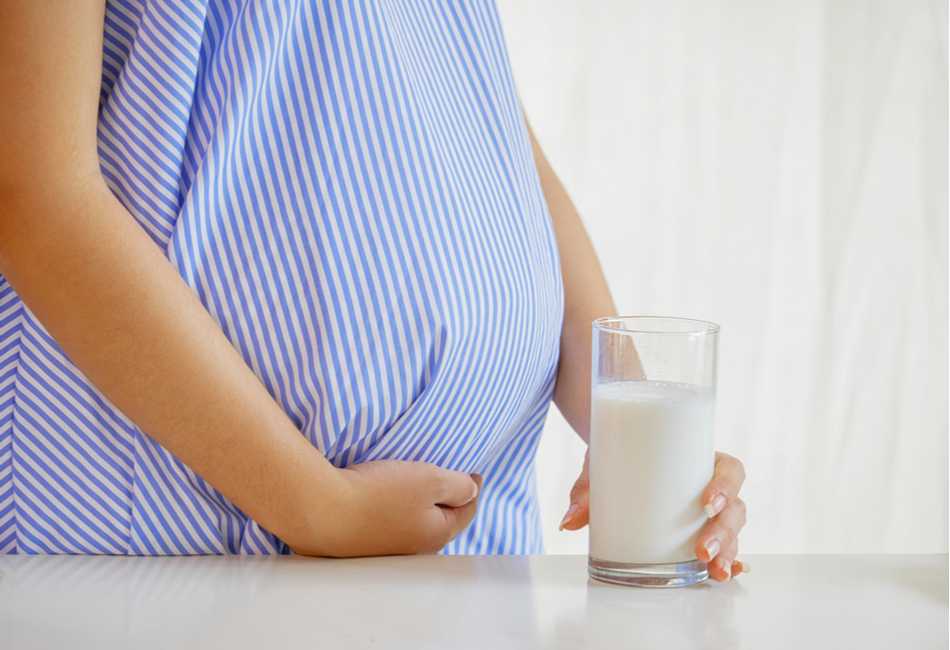
Most herbal teas should be avoided. Raspberry leaf, peppermint, ginger, and lemon balm tea are the only ones currently deemed as potentially safe. However, women may benefit from avoiding the first two during their first trimester of pregnancy.
Is it possible for pregnant women to use herbal teas, their varieties and positive effect
Can pregnant women use herbal teas, their varieties and positive effect- ✓ Fast delivery throughout Ukraine!
- ✓ Over 400 quality teas!
- ✓ Over 18362 satisfied customers!
- ✓ Free tea sample with every order!
- ✓ Accumulative bonus system!
-
Recently bought Rooibos (rooibos) Truffle for UAH 83 with delivery to Polyanytsya village, Ukraine
-
Recently bought Black tea Sausep OR for UAH 669 with delivery to Polyanytsya village, Ukraine
-
Recently bought Black tea Vesuvius for 66 UAH with delivery to Polyanytsya village, Ukraine
-
Recently bought Black tea English breakfast for 66 UAH with delivery to Polyanytsya village, Ukraine
-
Recently bought Black tea Lapsang Souchong for 76 UAH with delivery to Polyanytsya village, Ukraine
-
Recently bought Soolong Jin Xuan (Milk oolong) for 95 UAH with delivery to Polyanytsya village, Ukraine
-
0003
Recently bought Black tea Golden Yunnan for 171 UAH with delivery to Kyiv, Ukraine Ukraine
-
Recently bought Red tea Jin Jun Mei (Golden Eyebrows) for 194 UAH with delivery to Kyiv, Ukraine Ukraine
-
Recently bought Shu Puer Mini To Cha (Xiao To) for 38 UAH with delivery to Kharkiv, Ukraine in Kharkov, Ukraine
-
Recently bought Shu Puer Nai Xiang Puer (Milk Puer) for 140 UAH with delivery to Kharkov, Ukraine
-
Recently bought Red tea Lapsang Souchong (Smoked tea) for 262 UAH with delivery to Bolshoi Burluk, Ukraine
-
Recently bought Acai Berry Green Tea for 145 UAH with delivery to Kyiv, Ukraine
-
Recently bought Sausep Gunpowder Green Tea for 126 UAH with delivery to Kyiv, Ukraine
- Recently bought Puer Resin Cha Gao Shen "Jasmine Heart" SPECIAL QUALITY for 97 UAH with delivery to Kyiv, Ukraine
-
-
Recently bought Mate Green for 204 UAH with delivery to Kyiv, Ukraine
-
Recently bought Bound tea Flower of Wealth for 49 UAH with delivery to Kharkiv, Ukraine
-
Recently bought Bound tea Heart of Love for 58 UAH with delivery to Kharkiv, Ukraine
-
Recently bought Green tea Hua Long Zhu (Jasmine Dragon Pearl) for 157 UAH with delivery to Kharkiv, Ukraine , Ukraine
-
Recently bought Bound tea Golden Nut for 40 UAH with delivery to Kharkiv, Ukraine
-
Recently bought Bound tea Sun in Love for 49 UAH with delivery to Kharkiv, Ukraine
-
recently bought Silver Chrysanthemum Tea for 49 UAH with delivery to Kharkov, Ukraine
-
recently bought Cream Bones for 40 UAH with Kharkov, Ukraine
9000 -
Recently bought Bound tea Flower of Desires for 49 UAH with delivery to Kharkiv, Ukraine
-
Recently bought Oolong (oolong) Alishan for 274 UAH with delivery to Kharkiv, Ukraine
-
Recently bought Oolong (oolong) Da Hong Pao, Premium (Big red robe) for 369 UAH with delivery to Kharkiv, Ukraine
-
Recently bought Oolong (oolong) Te Guan Yin, Premium ( Iron Goddess of Mercy) for 405 UAH with delivery to Kharkov, Ukraine
-
Recently bought Green tea Feng Yan (Eye of the Phoenix) for 934 UAH with delivery to Poltava, Ukraine
-
Recently bought Oolong (oolong) Da Hong Pao, Premium (Big Red Robe) for 696 UAH with delivery to Poltava, Ukraine
-
Recently bought Oolong (oolong) Nai Xiang Jin Xuan (Milk Oolong) for 340 UAH with delivery to Poltava, Ukraine
We use information about the ip-address, location, as well as cookies (cookies) for your convenience and the optimal functioning of the site.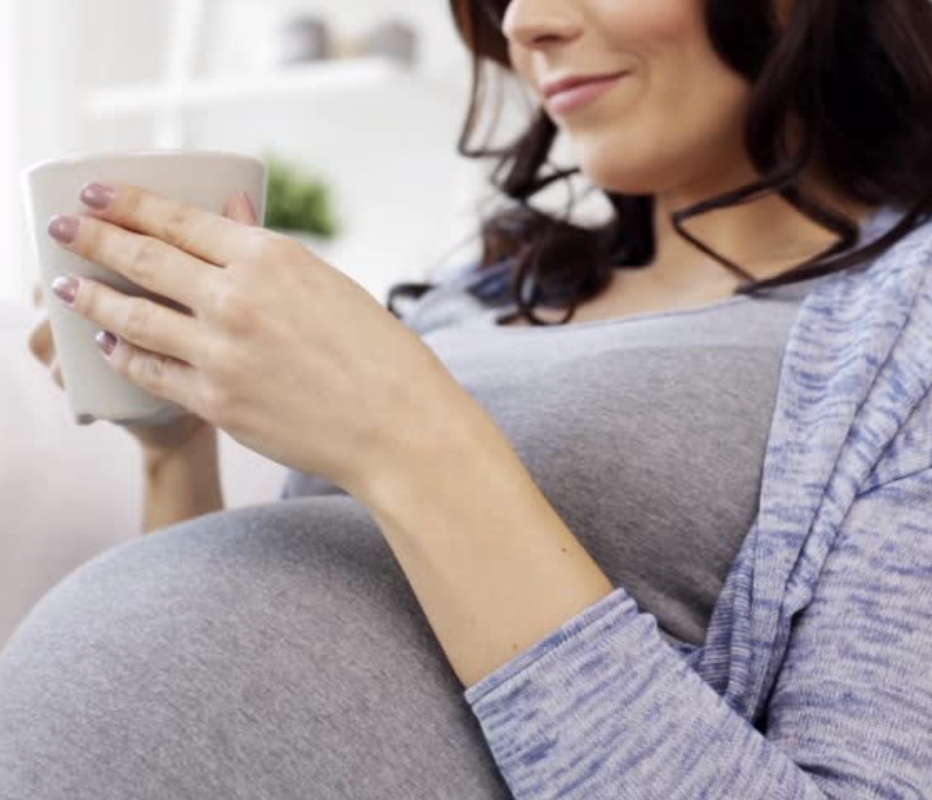 Scrolling further, you consent to the use of this data.
Scrolling further, you consent to the use of this data.
Is it possible to drink tea during pregnancy and which varieties to pay special attention to - an article on TCHK
During pregnancy, women have a lot of questions about what they can and cannot do. Including many, it is important to know how to build their relationship with tea during an interesting situation. What is the best tea for pregnant women? How much and when? In this article, we have collected all the most important information regarding this issue.
Classic tea during pregnancy (black, green, pu-erh, etc.)
If you like to drink black tea during pregnancy, you should remember that this drink contains caffeine, and the norm of this substance for a pregnant woman is 200-300 mg per day. Of course, no one carries a special tea calculator in their pocket, and calculating exactly how much caffeine you get with each cup is quite difficult. That is why it is better to brew black tea weakly (by pouring for 10-15 seconds) or diluted with more water (if you prefer this method of preparation).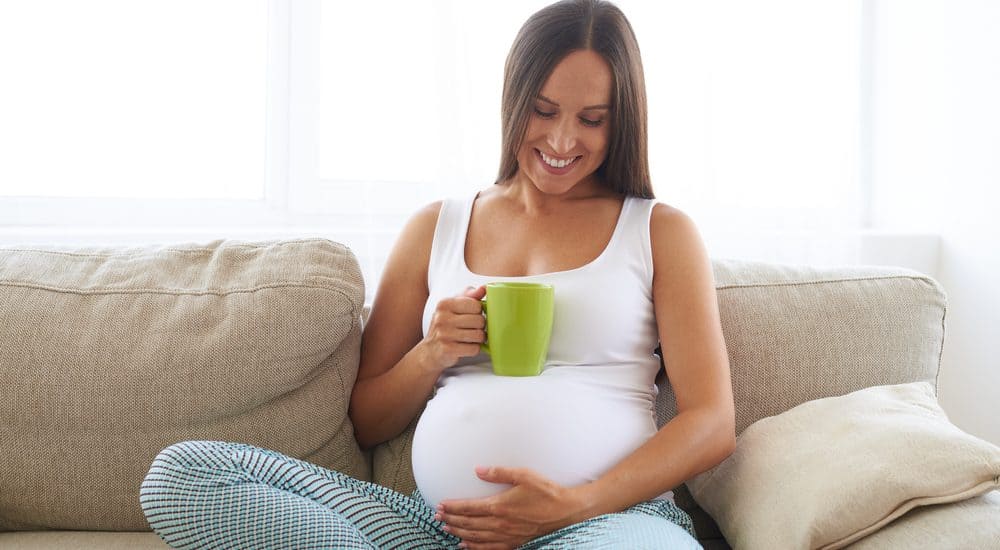
The same rules apply to those who like to drink green tea, as well as white, yellow, oolong and pu-erh. There is no less caffeine in these types of tea than in classic black (and even more in matcha). General medical advice for healthy women comes down to the advice not to drink more than 3 cups of regular tea made from the leaves of the tea bush.
Caffeine can easily cross the placenta and is difficult for the baby's immature liver to break down. Thus, infants are more likely to experience side effects from amounts of caffeine that would be considered safe for adults.
It is important to remember that caffeine is also found in many carbonated drinks, chocolate, cocoa and coffee itself. Therefore, when measuring for yourself the allowable amount of tea, consider other products that you consume per day.
Pregnancy tisanes
If you can give up traditional tea without compromising your quality of life and mood, consider other types of drinks.
The undisputed leader in this hit parade is rooibos - tisane, which does not contain caffeine and is allowed for both pregnant and lactating women, as well as children.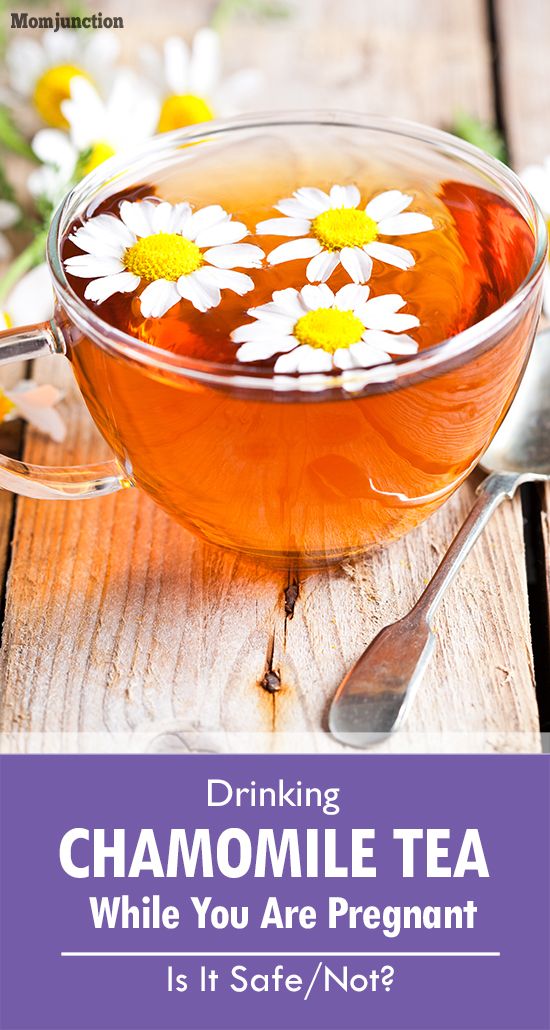 Hibiscus, kuqiao, anchan and ivan tea are also considered safe, but, like any herbal drinks, these tisanes should be alternated without getting carried away by any one type.
Hibiscus, kuqiao, anchan and ivan tea are also considered safe, but, like any herbal drinks, these tisanes should be alternated without getting carried away by any one type.
Herbal teas for pregnant women (herbal teas)
Although it is commonly believed that herbal teas are more beneficial for pregnant women than classic ones, this is actually a very controversial issue. As with the traditional tea leaf, a pregnant woman should use any herbal drink in moderation, as even the safest plants in large quantities can harm the baby.
The most useful herbal tea for pregnant women
You may be surprised, but this tea is made from raspberry leaves. Medical studies have shown that red raspberry leaf can be safely consumed during pregnancy. Many midwives and herbalists believe that regular consumption of raspberry leaf tea can help prevent pregnancy complications such as preeclampsia, preterm labor, prolonged labor and postpartum hemorrhage, as well as reduce the duration of labor and the number of interventions used, including caesarean section.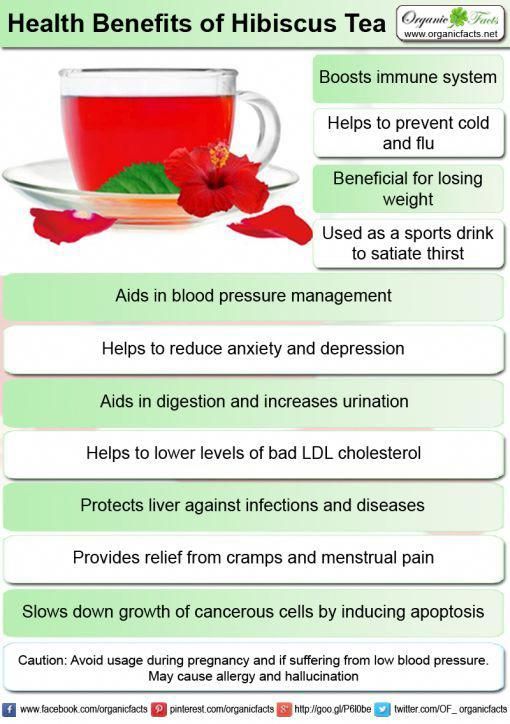 . In addition, raspberry leaf helps prevent too early or too late delivery.
. In addition, raspberry leaf helps prevent too early or too late delivery.
Teas for toxemia
For many women in the early stages of pregnancy (and sometimes longer) it is very important to find their own way to cope with nausea caused by toxemia. Properly selected tea can be a good way to solve this problem.
Mint tea
The fresh cool aroma of mint becomes a real salvation for many pregnant women during toxicosis - the essential oils of this plant can alleviate the symptoms of the disease. Not recommended in the first trimester.
Ginger tea
Ginger root helps to relieve nausea and vomiting, it is also considered the first aid in toxicosis. Use with caution if you have stomach problems.
Chamomile tea
Chamomile tea is also good for women suffering from toxicosis, and in addition, it has a positive effect on the nervous system and helps with thrush. Despite the fact that it is considered useful for pregnant women, you should not get carried away with it - an overdose can have an abortive effect.
Healthy supplements for tea
It is very important for a pregnant woman to get the maximum amount of nutrients per day (without fanaticism, of course). That is why adding a little honey, berries or fruits to your tea can be a good idea.
Tea with lemon
This tea is worth drinking to prevent the symptoms of toxicosis and overall strengthening of the immune system. Not recommended if a woman has stomach problems (gastritis, heartburn, etc.).
Tea with honey
A spoonful of honey will always make your drink better and healthier (at least if you are not allergic to honey components). It is a good source of antioxidants, natural prebiotic and antibacterial.
Tea with berries
Raspberries, cranberries, sea buckthorn, currants, strawberries - you can continue this list according to your taste. By adding berries to tea, you enrich it with vitamins, minerals and antioxidants.
Which tea should not be drunk during pregnancy?
According to doctors, women should beware of the use of teas, which are largely contained by the following plants:
-
Cloth
-
Cucumber
-
9000 9000 9000 9000 9000 9000 9000 9000 9000 9000 9000 9000 9000 9000 9000 9000 9000 9000 9000 9000 9000 9000 9000 9000 9000 9000 9000 9000 9000 9000 9000 9000 9000 9000 9000 9000 9000 9000 9000 9000 9000 9000 9000 9000 9000 9000 9000 9000 9000 9000 9000 9000 9000 9000 9000 9000 9000 9000 9000 9000 9000 9000 9000 9000 9000 9000 9000 9000 9000 9000 9000 9000 9000 thyme
-
motherwort
-
lovage
-
ginseng
-
celandine
-
sagan-daila
Verbena
These plants have abortive properties or can harm the child (delayed development, risk of intrauterine defects).